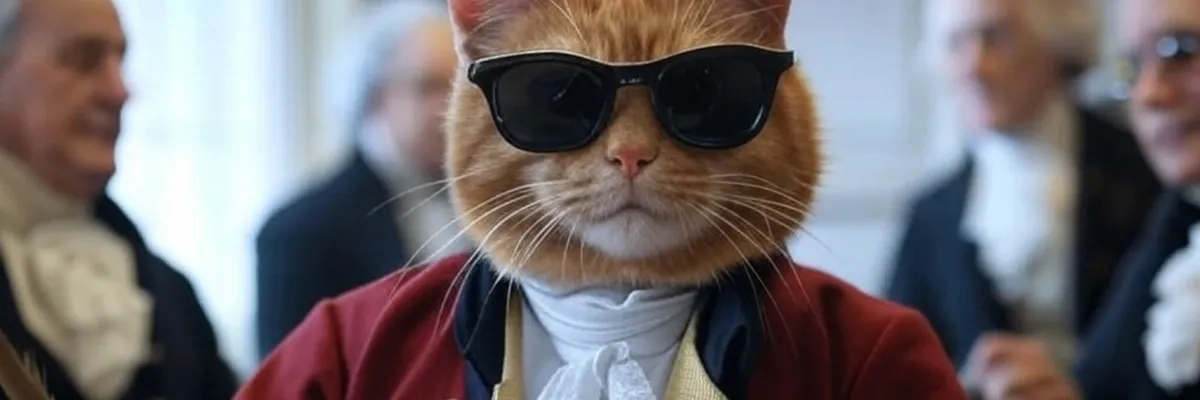The Philosophical Foundations of Privacy

Privacy in the modern age fits into the Lockean ideas that influenced the Declaration of Independence - specifically the unalienable rights of "Life, Liberty, and the pursuit of Happiness" - by serving as a natural extension of liberty and a prerequisite for pursuing happiness. John Locke's philosophy of natural rights, which profoundly shaped the Declaration, provides a framework that can encompass privacy, even though he did not explicitly address it as a distinct right. This connection becomes particularly relevant in today's world, where technological advancements have redefined personal autonomy and individual freedoms.
Locke's Influence on the Declaration
John Locke, a 17th-century philosopher, argued that individuals possess natural rights - life, liberty, and property - that exist inherently and are not granted by governments. These ideas inspired Thomas Jefferson when drafting the Declaration of Independence in 1776. However, Jefferson adapted Locke's trio, replacing "property" with "the pursuit of Happiness." This shift broadened the concept from mere ownership of material goods to include personal fulfillment and well-being, setting the stage for a more expansive interpretation of individual rights. The Declaration's assertion that "all men are created equal" and endowed with these unalienable rights reflects Locke's belief that such rights are universal and inalienable, forming the basis of a just society.
Privacy as an Extension of Liberty
In Lockean thought, liberty is the freedom to act without undue interference from others or the state, as long as one does not harm others' rights. Privacy aligns closely with this definition, protecting individuals from unwarranted intrusion into their personal lives. In the modern context, privacy can be seen as a component of liberty in several ways:
Freedom from Surveillance: Constant monitoring by governments or corporations - whether through cameras, data tracking, or online profiling - restricts personal autonomy, a direct affront to Lockean liberty.
Control Over Personal Information: The ability to keep details like health records, financial data, or personal communications confidential preserves individual freedom, shielding people from exploitation or coercion.
Autonomy in Decision-Making: Privacy ensures that intimate choices - such as those about family, relationships, or beliefs - remain free from external control, echoing Locke's emphasis on self-determination.
For example, landmark U.S. legal cases like Griswold v. Connecticut (1965), which established a right to marital privacy, demonstrate how privacy is tied to liberty. Though not explicitly in the Constitution, courts have interpreted it as part of the liberty protected under the law - a modern reflection of Lockean principles.
Privacy and the Pursuit of Happiness
The "pursuit of Happiness" is a uniquely American twist on Locke's ideas, emphasizing the right to seek personal fulfillment and live according to one's values. Privacy is essential to this pursuit, enabling individuals to thrive without fear of exposure or interference. Its role can be understood through several lenses:
Personal Development: Privacy provides the space to explore ideas, form relationships, and make mistakes away from public scrutiny, fostering growth and self-discovery.
Authentic Expression: The freedom to communicate privately ormaintain personal boundaries allows individuals to express themselves genuinely, which is critical for happiness.
Safeguarding Well-Being: Protecting sensitive information - such as medical histories or personal struggles - preserves dignity and security, both of which are foundational to a fulfilling life.
In the digital age, where social media, data breaches, and surveillance threaten personal boundaries, privacy's importance is amplified. Without it, individuals may feel constrained, unable to pursue their goals or maintain their well-being freely.
Privacy in the Modern Age: A Lockean Perspective
While Locke wrote in an era before smartphones and the internet, his principles remain adaptable. He viewed government as a social contract designed to protect natural rights, suggesting that any authority infringing on liberty or happiness exceeds its legitimate bounds. Today, privacy challenges like online surveillance, data mining, and identity theft test this framework. These issues represent new forms of interference that Locke might not have imagined but that nonetheless undermine the autonomy he championed.
For instance:
Data Privacy: Companies collecting vast amounts of personal data without consent can manipulate behavior, limiting free choice - a modern violation of liberty.
Government Overreach: Mass surveillance programs, like those revealed by Edward Snowden, encroach on individual freedom, conflicting with Locke's view of limited government power.
In this light, privacy becomes a safeguard for the same rights Locke sought to protect, updated for a world where threats to autonomy extend beyond physical coercion into the digital realm.
Conclusion
Privacy in the modern age fits seamlessly into the Lockean ideas that influenced the Declaration of Independence. As an extension of liberty, it shields individuals from interference, preserving their autonomy in an era of unprecedented surveillance and data collection. As a foundation for the pursuit of Happiness, it enables personal fulfillment by protecting the space needed for growth, expression, and well-being. Though not explicitly named by Locke or in the Declaration, privacy aligns with the spirit of their vision: ensuring that individuals remain free to live as they choose, endowed with rights that no authority can justly take away. In today's interconnected world, privacy may be more critical than ever to upholding these unalienable rights.
